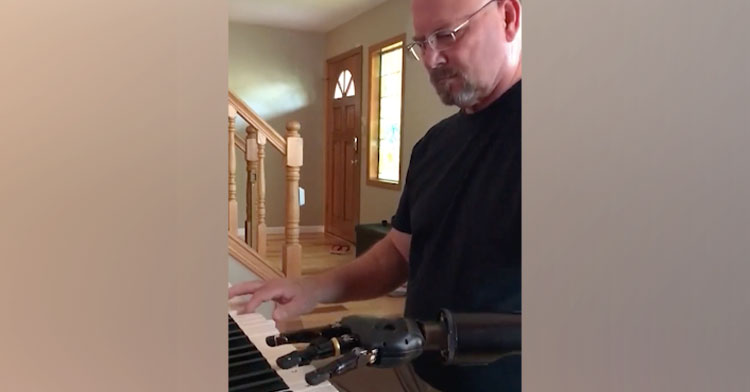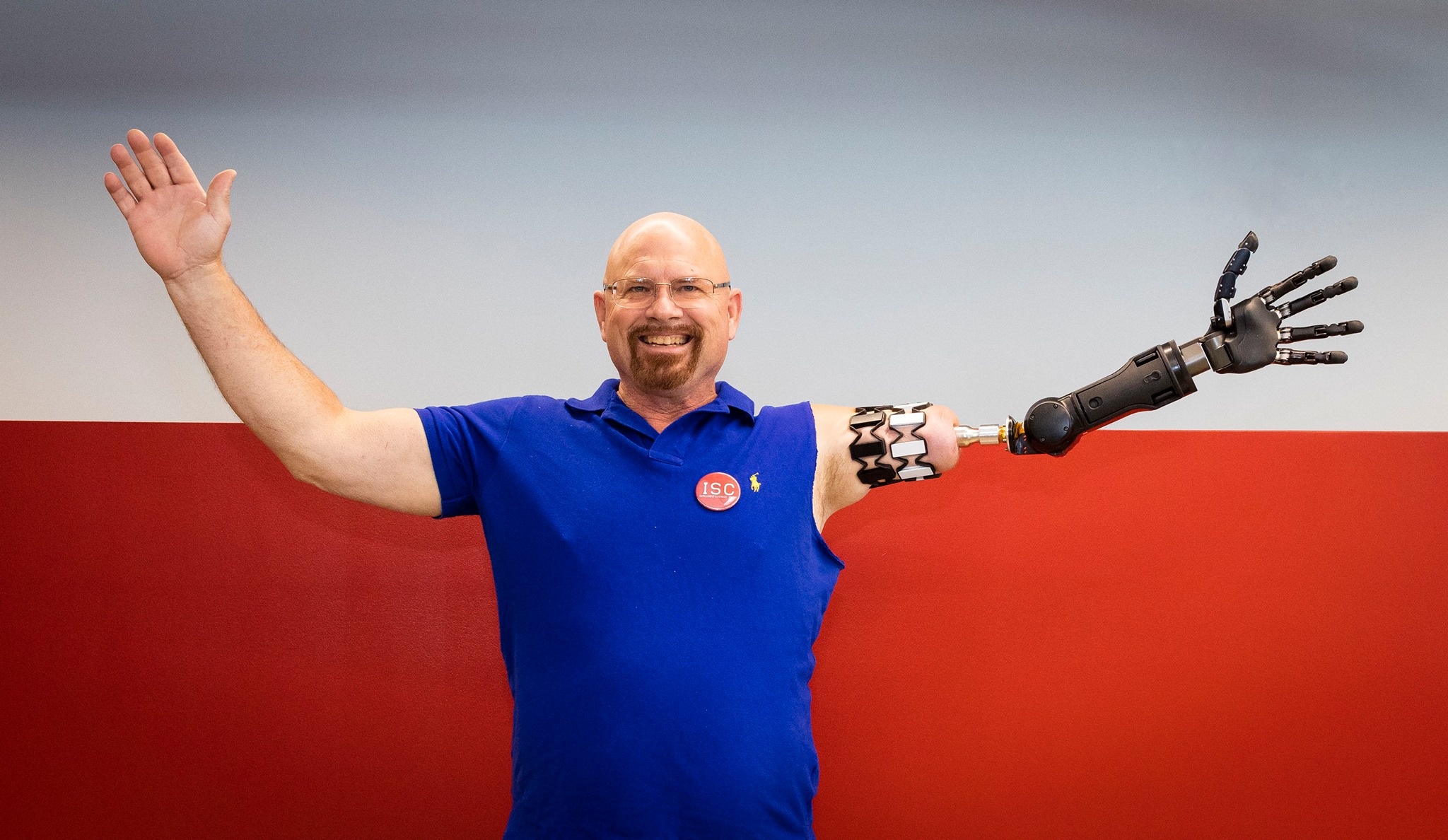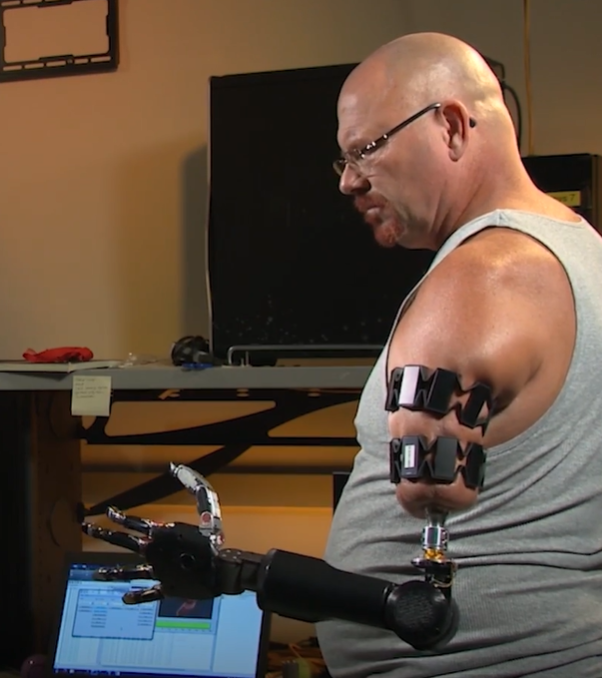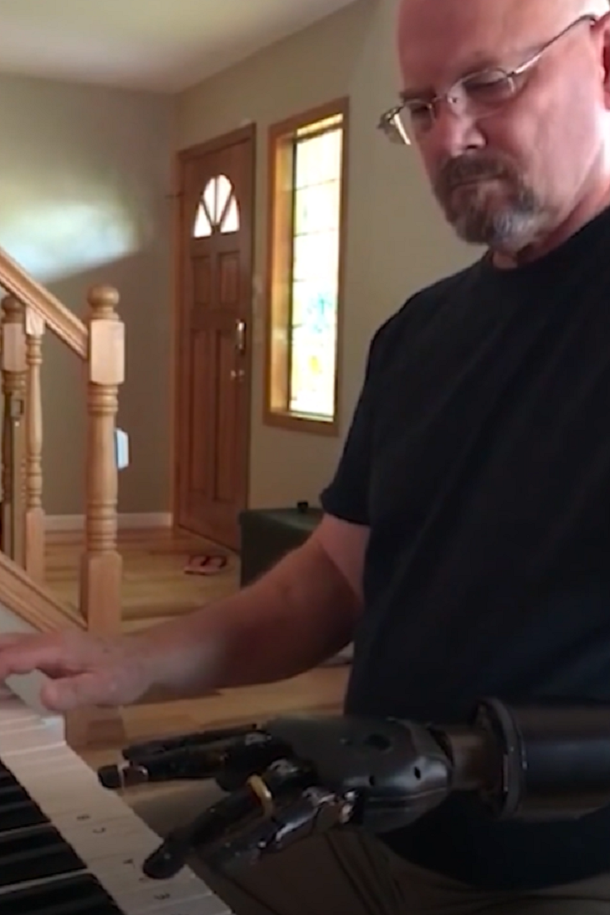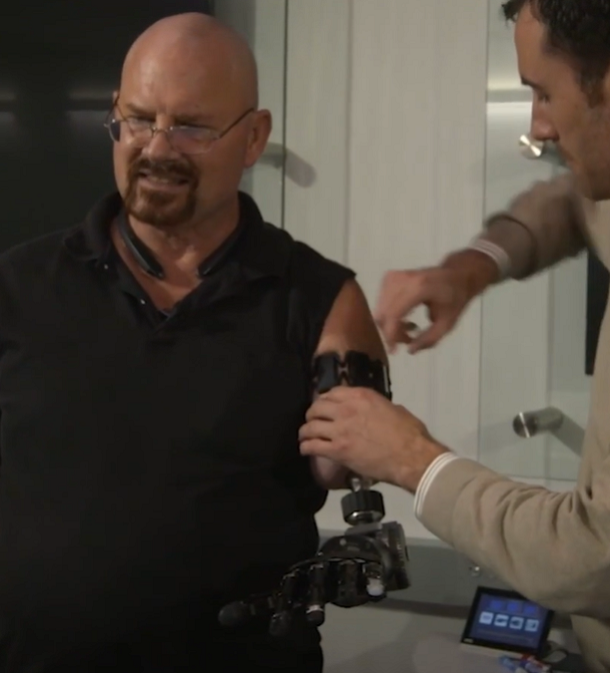In 2008, Johnny Matheny faced a horrible choice to have his left arm amputated above the elbow… or lose his life to cancer.
Johnny chose amputation, and over 10 years later, he’s the picture of good health. Feeling compelled to give back to the doctors and scientists who saved him and to help other amputees, Johnny signed up to work with researchers at Johns Hopkins Applied Physics Laboratory to create state-of-the-art prosthetic limbs.
He tried out a number of prototypes over the years, but in 2018, he became the first person to ever try out the most advanced modular prosthetic limb (MPL) in the world. Luke Osborn, head of APL’s Research and Exploratory Development Department, explained that older models were “often hard to control, unreliable, or don’t offer the functionality needed by the user.”
Seeing how a prosthetic arm works in the real world was invaluable, and Johnny worked hard to push the limits of what he could do with his new limb.
The new MPL operates by detecting muscle signals from the residual limb of an amputee using electromyography. Those muscle signals are interpreted by a computer that’s on the prosthesis. The prosthesis then reads the signals and performs the intended function.
“Johnny’s thinking about moving his hand, and that signal starts in his brain when he has that thought and then travels down through his spinal cord then ultimately results in this muscle signal that we’re able to pick up and then send to the prosthesis to actually make the movement,” Luke said.
Incredibly, after just a year of trying, Johnny recently did something no prosthetic user has ever accomplished before: He learned to play “Amazing Grace” on the piano.
This milestone is thrilling to the scientists behind this sort of prosthesis. It proves that MPLs like Johnny’s can return a lot of normalcy to the lives of other amputees. Musicians who thought they’d never play again have renewed hope after watching Johnny tickling the ivories!
“What this proves is that an advanced arm like the MPL has the potential to improve prosthesis control accuracy and efficiency over time, even in an extremely experienced user,” Luke said.
“This study was an important milestone, though, because it was the first time someone was able to use the MPL in their personal environment,” agreed Bobby Armiger, the project manager for the study. “He was able customize the arm and learn to do the things he wanted – like playing the piano.”
Researchers say this study is the start of amazing advancements in prosthetic limb development. Johnny set out to help others with his experience, and he has certainly accomplished that mission — and then some!
Watch Johnny play “Amazing Grace” in the video below, and don’t forget to share this marvelous advancement.
Want to be happier in just 5 minutes a day? Sign up for Morning Smile and join over 455,000+ people who start each day with good news.



